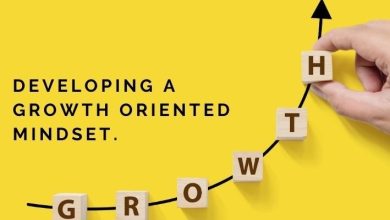The Psychology of Money: Understanding Your Money Mindset .

With effective insights into the psychology of money and your money mindset, you can live life quite easily. After understanding these money mindset aspects, you can constructively plan and manage your money. Therefore, go through a different money mindset and identify what matches you the most.
Money is undoubtedly an unforgettable and undeniable part of our lives, as its impact influences hundreds of our decisions. From serving dishes to guests to going for groceries, money is what matters the most. And if our basic approach towards such a critical aspect of our life needs to be corrected, how will our influenced decisions be right? Therefore, we have discussed the psychology of money and how your money mindset works. So, let’s dig in….
Psychology of Money and Money Mindset: A Quick Rundown
Whenever we hear “Money,” a quick thought of green dollars and luxuries comes to mind. However, differences arise when we talk about individuals’ approaches, concepts, beliefs, and mindsets regarding money.
And this is exactly what the psychology of money is all about! It is the science of studying and exploring the approach of the individual human mind toward money. It revolves around thoughts, beliefs, behavior, attitude, and emotions about money that affect their decision-making skills and overall financial status.
In short, the psychology of money deals with the comprehensive study of the complex relationships between money and individuals based on their cognitive and social responses.
While the money mindset can be defined as an individual’s perspective toward money, it might be positive or negative, greatly influencing the person’s decisions, behaviors, and outcomes regarding money. The money mindset is usually shaped by a person’s past experiences, social lifestyle, cultural background, and personal values.
Why is Understanding the “Psychology of Money” and “Money Mindset” Important?
Money is one of the biggest aspects or assets in one’s life, and understanding the true meaning of it is effective not only for self-awareness but for bringing your life a meaningful change. Here, we have enlisted some points describing the importance of understanding these two closely-related concepts of money. Let’s have a quick look at them!
Achieving Financial Goals
Having the proper knowledge about money mindset can help you set your financial goals and achieve them effectively. Having the right path will boost your confidence and motivation to make your financial dreams come true.
Overcome Financial Challenges
Having the right money mindset will not only help you understand the potential challenges and dangers of finance handling but will enable you to overcome them in the best way. So, whether it is business loss, profits ratio, job loss, or markets’ ups and downs, you’ll have a solution ready for every problem.
Develops Healthy Money Habits
Getting away from negative financial cycles that lead to instability, like debts and overspending, is tough to break. However, by following the proper mindset, you can manage them and develop healthy financial habits to save your future.
Improves Money Management Skills
By knowing the underlying insights of how money works and how our behavior needs to be towards finances, you can easily develop strategies to improve financial processes and outcomes.
Make More Impactful Financial Decisions
By having a true understanding of the potential risks, challenges, and dangers of the money-handling process, you can make more impactful financial decisions that only bring positive outcomes in life but help you in having financial stability.
Sense of Financial Freedom
By developing a positive money mindset as well as an effective money-saving approach in life, a sense of financial freedom is developed that enables you to take control of your finances and make smart decisions, giving out impactful and profitable benefits.
The Positive and Negative Approaches of “Psychology of Money” and “Money Mindset”
As we know, the psychology of money and its mindset refers to the individuals’ attitude, thoughts, behavior, and emotions toward finances; it significantly impacts your approaches, including your views of earning, saving, spending, and investing. Let’s look at the top 3 negative and positive money mindsets commonly found in human psychology.
3 Common Negative Money Mindsets
Scarcity Mindset
Individuals with this mindset suffer from anxiety and fear regarding money management. They might face trouble and unconscious restrictions while spending money, even on their necessities, even if they have the resources to fulfill their needs. This mindset may be a result of childhood trauma or past financial instability.
Overspending Mindset
This mindset refers to individuals who spend more than they can afford, especially on luxuries, often leading to debts and instability. Such individuals’ money habits are controlled by impulse shopping and don’t plan for long-term financial goals.
Debt Acceptance Mindset
This mindset happens due to a lack of motivation and resources for achieving financial stability goals, leading to long-term and significant damage. Individuals with such perspectives accept debts as part of their routine and make extra efforts to pay them off and release themselves from financial stress.
3 Common Positive Money Mindsets
Budgeting Mindset
This mindset includes “budget planning” for potential purchases like monthly groceries, car repair, home maintenance, utility bills, education, transportation expenses, and additional costs. Also, individuals keep track of their spending and take necessary steps to save money.
Abundance Mindset
The healthy relationship between individuals and money characterizes this mindset. It is a belief that you have unlimited resources to earn money and know how and where to find them. It not only results in confidence and motivation but infinite opportunities as well as happiness and peace of mind.
Investment Mindset
This mindset revolves around using money as a tool to create large sums of money to have future financial stability. Individuals with such a mindset invest the money as an asset and take necessary strategies to achieve their goal of financial freedom. It may include making multiple income streams, building financial security, and making money without prior efforts.
Factors that Shape Human Behavior Towards Money

Various factors shape human psychology towards money and influence their decisions. And understanding these factors and bringing changes in your mindset benefits you in the long run. It helps you have insights into your own money habits to develop strategies and habits that enhance your money management skills.
Here we have enlisted a few of them to help you gain deep insights into a money mindset:
- Cultural background and traditions
- Childhood financial experiences
- Personal beliefs and values
- Educational Path and Major of Studies
- The career of the individual
- Past financial experiences
- The economic and political condition of the state
- Influence of media and Advertisements
- Risk tolerating mindset of the individual
- Awareness and financial education
- Financial goals and objectives
- Family upbringing and circumstances
- Personality Traits, and many more!
How to Identify Your Money Mindset?
Identifying your money mindset is a critical step towards developing a healthy and profitable relationship with the finances. It allows you to acknowledge the wrongs in your mindset that are reflected in your behavior, attitude, thoughts, and approaches. And then will enable you to make effective strategies to achieve financial success and overcome dangers, risks, and challenges.
Here we have discussed some financial mindset tips to evaluate your money psychology. So, let’s have a quick review of them!
- Keep track of your expenses and do this for a particular period, like a month or two. Also, determine the types of costs you have in daily life, like transportation, utility bills, educational fees, service charges, groceries budget, and luxuries, and identify where you are overspending.
- Look thoroughly at your bank statements for the additional services you are getting, for example, gym subscriptions, streaming platforms, and recreational centers memberships. And now, think about whether you can have a cheaper alternative for them or whether they are necessities.
- Start evaluating your saving and investing habits and identify how much money you have earned as profit or saved from your finances, or are they enough for you to meet your needs or just around some bucks? By this, you’ll be motivated to make financial goals and try to achieve them for future stability.
- Think about the major financial experiences of your life, like your first salary, investment, major expense, and related events. And then recognize whether your life’s big financial experiences match your dreams, beliefs, or thoughts or are the opposite.
- Recognize the beliefs, values, or any kind of thoughts that are restricting you from taking steps that lead to financial growth. Is it your 9 to 5 job? Is it your friend who lost money in a business last year? Is it your anxiety that triggers at every time of spending? Or is it your past life experience that scares you from taking risks?
- Start reconsidering your financial goals and how much effort you make to achieve them. For example, are you planning to pay your whole debt this year? Or how much money you have saved out of your desired amount? Acknowledge the facts behind these goals being important to you and how motivated you are to achieve them.
Final Thoughts: Human Psychology and Money Mindset
While wrapping up, you would have understood that it is important to identify your money psychology, habits, and behavior and take the necessary steps and strategies to make them successful and profitable. It’s about achieving your future financial goals and performing out of the ordinary in every aspect of your life.



